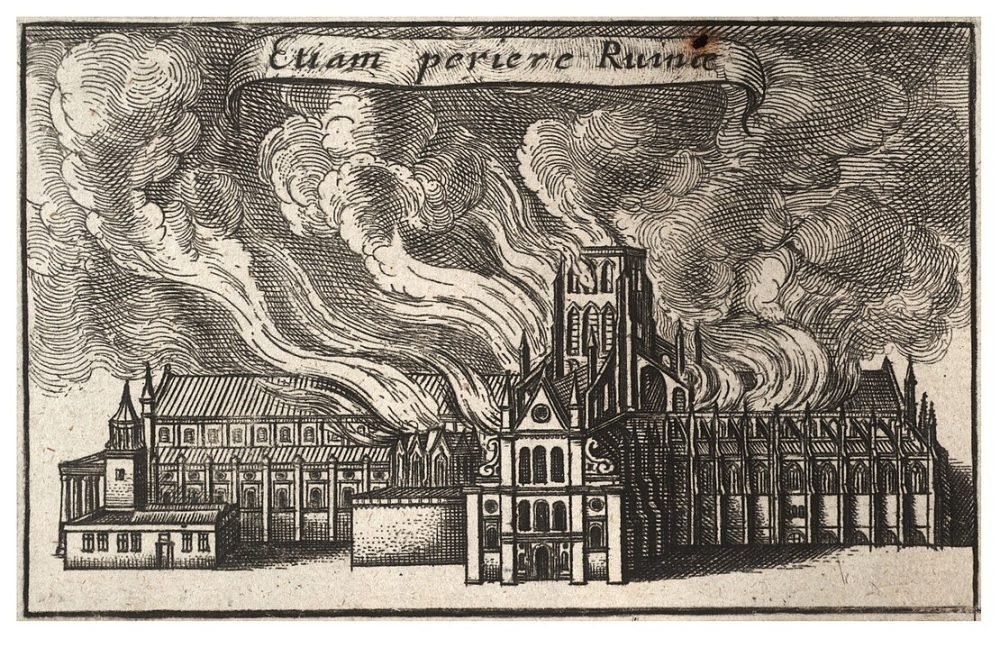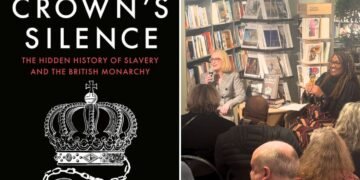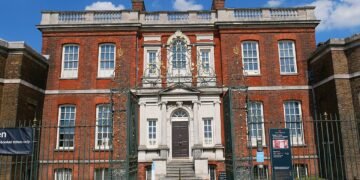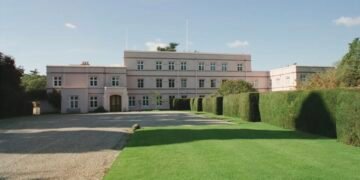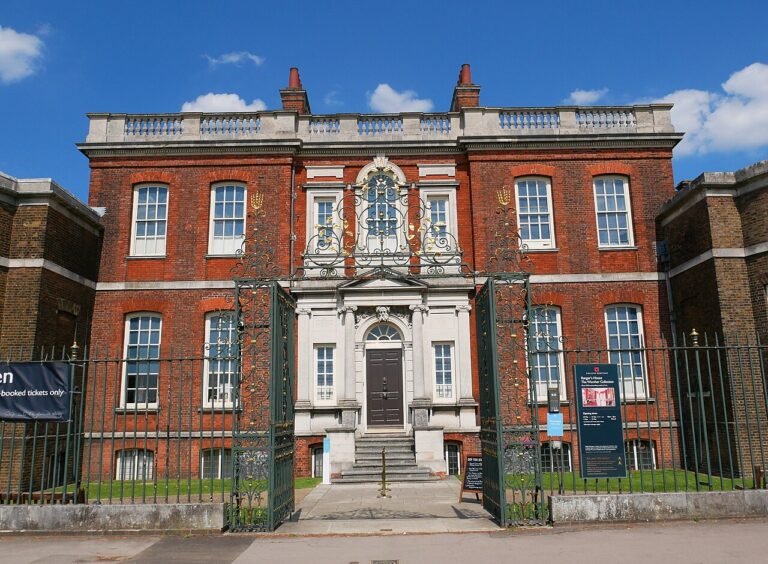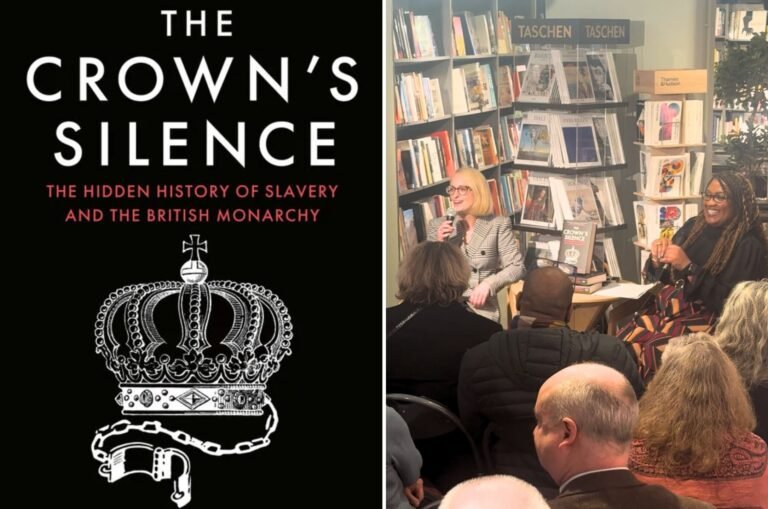One of the most iconic events in British history was the Great Fire of London. A tale of destruction, disaster and superstition.
It began 359 years ago today, so let’s take a look at the causes and consequences of that disastrous spark…
What caused the Great Fire of London?
Flames originated in a bakery on Pudding Lane in the early hours of Sunday 2nd September. It seems that it started in an oven that had not properly been put out, and was noticed by a workman who roused the sleeping tenants.
Thomas Farriner – sometimes spelled Farynor – was the owner of the bakery, working to provide ship biscuits (long-lasting, hard-baked crackers suitable for long voyages) to the Navy.

1666 – the year of the Beast
There had already been an air of foreboding ahead of the year 1666, the year of the Great Fire. The number 666 was closely associated with the devil, as foretold in the armageddon-like Book of Revelation.
The year previous had also been tough, with plague hitting London hard, affecting trade and crops. It all added to the sense of impending doom.
Many predicted war, further plague, the overthrow of various leading figures such as the Pope or the King; even the end of the world. This was the context against which the helplessness was felt, as the fire raged on.
Residents thought fleeing was the best course of action, as the end may have been nigh…
Why was the Great Fire of London so destructive?
The Great Fire was a perfect storm of conditions, personalities and politics for the flames to rage uncontrollably.
April 1665, Charles II had written to the Lord Mayor of London, Sir Thomas Bloodworth, warning of the fire risk. By the summer, the Thames had dried up to a trickle and there were strong winds blowing, which had recently helped the English fleet against the Dutch in the Second Dutch War.
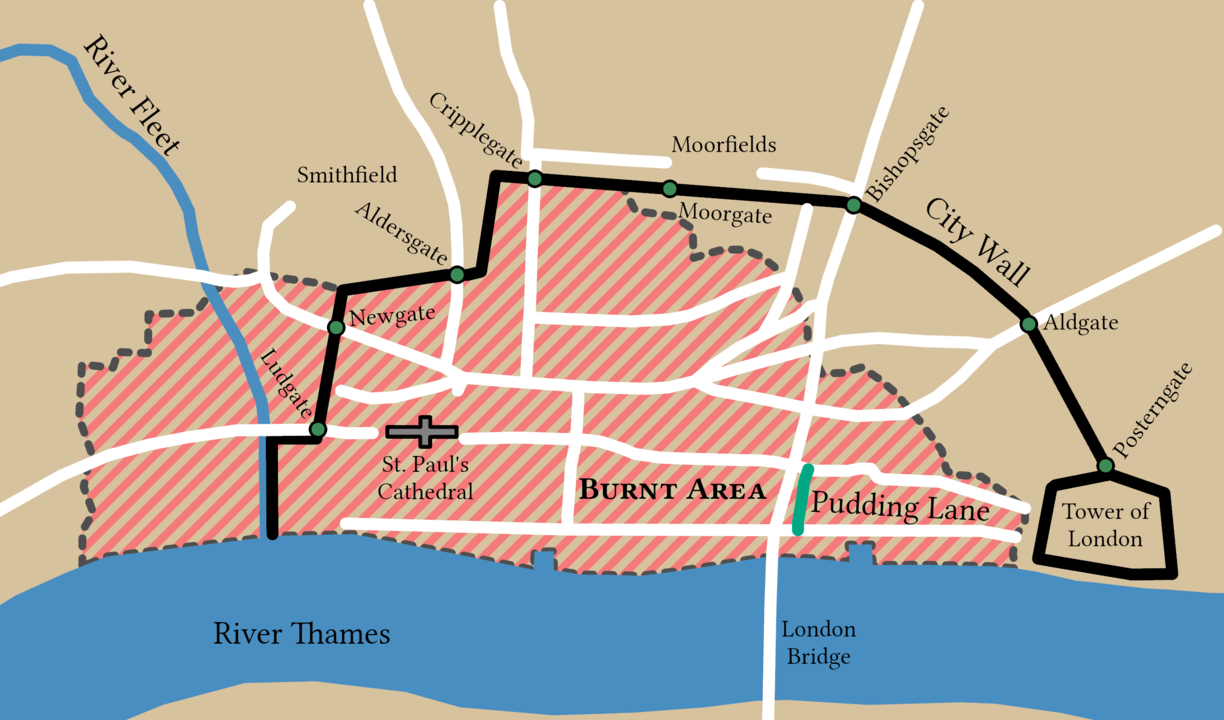
Thatched roofs had been banned for 300 years, but it was a convenient roofing type. The streets of London were crowded and made narrower with their jettied, overhanging buildings that brought timber-framed dwellings closer together.
The neighbourhood around Pudding Lane, located less than 200m from the river, was linked closely to shipping and so the houses held flax, linen and tar – materials that are very combustible.
… whose fault was the fire?
Farriner insisted during the investigation – and as the fire continued to rage – that he had extinguished his ovens by 10pm. To further back this up, at midnight, when he tried to light his candle from the embers of his shop fire, it didn’t have enough heat to catch so he had to use another in the house, which he then raked over.
A witness also claimed that it took over an hour for the flames to spread next door, by which time the owner had had chance to remove all their goods from the house.
But a simple explanation of personal error didn’t suit Londoners…
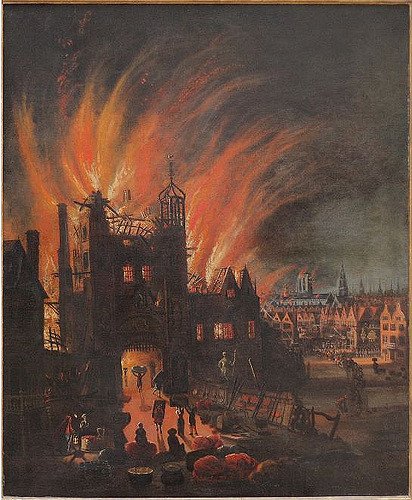
Hysteria had raged throughout the ordeal, as it must have felt like the end of the world, brought on by the devil himself. They looked for someone to blame and began with the foreigners of the city: the Catholics, Dutch, French. Or anyone who spoke poor English for that matter.
The situation was so dire that the Spanish Ambassador of the time opened his home as a refuge to all foreigners, including the Protestant Dutch and the French.
The King attempted to quell this xenophobia, and addressed those who were made homeless in the fire: Charles II declared that the fire had not been started by foreign powers, but was act of God.
Unsurprisingly, this did nothing to soothe the people’s mood but a Parliamentary Committee was appointed to investigate the conflagration. And a scapegoat was found at the end of the month.
Enter the scapegoat
A French watchmaker, Robert Hubert, confessed to having started the fire in Pudding Lane as part of a team of 23 conspirators. While his story changed regularly – and it seems none of the judges believed he was responsible – Hubert was hanged at Tyburn for arson, to give Londoners a sense of closure to the disastrous chapter.
Thomas Farriner and his family even signed the bill accusing Hubert of starting the fire.
Most point fingers at Farriner, though, since the fire started in his house and the Hubert’s story doesn’t add up. A simple case of human error causing the swathes of destruction.
Why wasn’t the Great Fire stopped in time?
Within an hour of the fire starting, the Lord Mayor had been woken with the news, but retorted: ‘A woman might p*** it out’. Bloodworth was unconvinced by the threat of the flames and therefore did not authorise the pulling down of houses around the fire, enabling it to spread rapidly.
But politics was also at play.
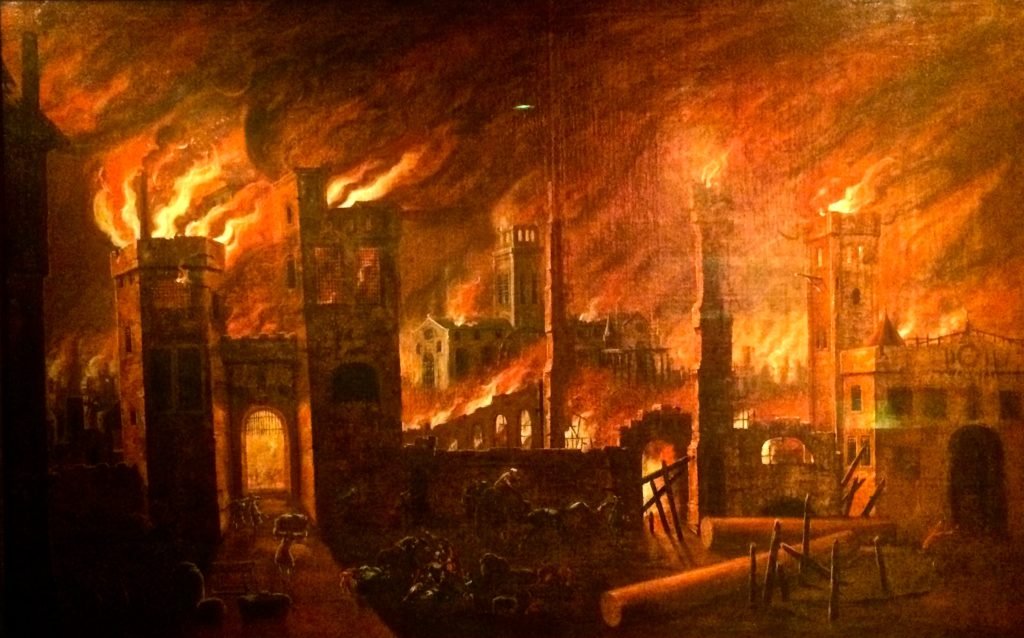
Having only been restored to the throne six years before, Charles II was aware of the delicate balance of power, and working within the confines of the law and accepted traditions. The law safeguarded his subjects’ property, meaning there could be repercussions by ordering the destruction of houses and businesses. Charles also could not raise troops and send them into London – even if it was to help battle the blaze. It would have been offensive to the city of London’s autonomy, embodied in the Lord Mayor.
This is also why James, Duke of York had to discreetly organise soldiers.
Primitive firefighting was also not up to the task, with buckets and firehooks as their weapons. As locals chose to flee the city walls into the open spaces beyond, there were also few bodies available to help.
The fire had reached London Bridge by the second day and the waterwheels, which supplied fresh water to the city, were destroyed. This prevented any water being pumped onto shore to help fight the fire.

